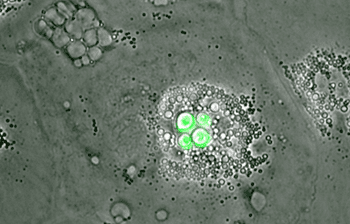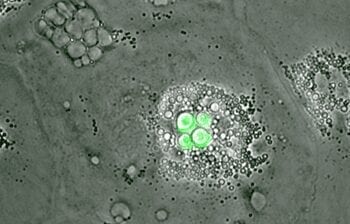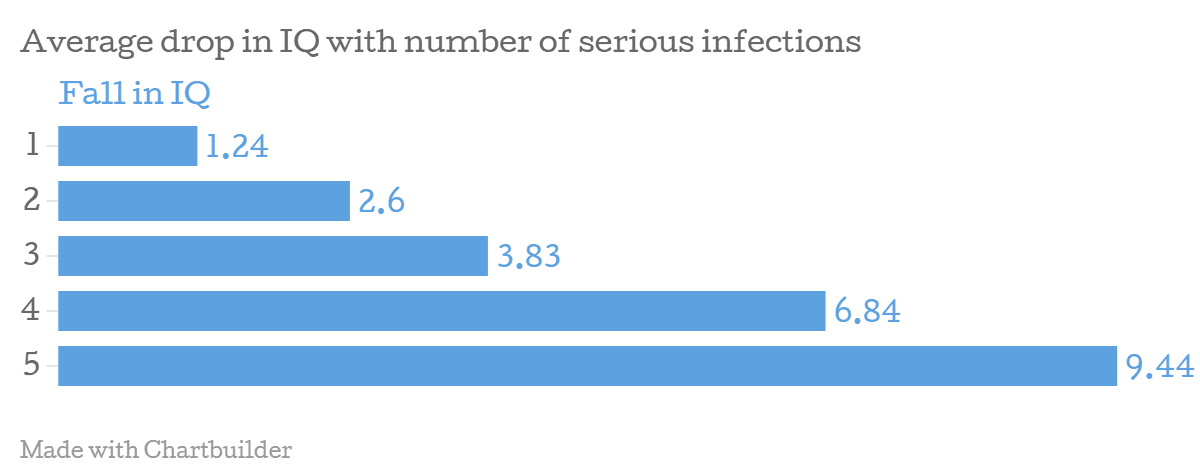
Scientists have discovered that a specialised white blood cell found in birds can destroy a potentially fatal fungal infection which affects more than one million people every year.
Cryptococcus neoformans is a fungus that causes fatal infections in those with a weakened immune system. It is one of the most dangerous infections of individuals with AIDS and is thought to cause hundreds of thousands of deaths worldwide, every year.
Birds are known to carry the fungus and their droppings are thought to be a source of human infection; however it has been a longstanding mystery why the birds themselves do not appear to become ill.
Now, a team from the University of Sheffield have shown that a particular white blood cell within the bird’s blood system, called a macrophage, is able to completely block the growth of Cryptococci.
The scientists, led by Dr Simon Johnston, found that the fungus can grow slowly within the bird’s digestive tract, but if it tries to invade the bird’s body then the immune system immediately destroys it – which explains why healthy birds can still help spread the infection.
Dr Johnston said: “Birds have a higher body temperature than humans, 42 oC instead of 37 oC, but this alone is not enough to fully stop the fungus.
“By studying bird cells under the microscope, we have seen that macrophage cells have the ability to completely block the growth of the fungus, which can be fatal in humans.
“Understanding where the disease comes from and how it spreads is critical. If we can learn how some animals are able to resist infection we might be able to gain insights into how we can improve the human immune response to this fungus.”
The Latest on: Fungal infection
[google_news title=”” keyword=”fungal infection” num_posts=”10″ blurb_length=”0″ show_thumb=”left”]
via Google News
The Latest on: Fungal infection
- Here’s How Zinc Can Help You Combat Vaginal Yeast Infectionson May 1, 2024 at 8:03 am
Zincs antifungal immune-supporting and anti-inflammatory properties make it a valuable ally in managing and preventing vaginal yeast infections ...
- Oral fungal infection treatment shows promise in preclinical trialson April 30, 2024 at 1:09 pm
A novel oral amphotericin B (MAT2203) developed by Matinas BioPharma for treatment of invasive mucormycosis (IM) and other deadly invasive fungal infections, has demonstrated encouraging results in a ...
- Ringworm in the house: How indoor pets catch this fungal foeon April 29, 2024 at 12:37 am
Ringworm infections in pets can lead to hair loss, skin lesions, and potential transmission to other animals and humans.
- Rise in fungal skin infections due to fluctuating weather, warn docson April 28, 2024 at 3:56 pm
Nagpur: Skin specialists from Vidarbha who were in the city on Sunday for a conference organized by Vidarbha Dermatological Society (VDS) highlighted .
- Zombie-like fungus could turn cicadas into ‘saltshakers of death’ this summer: expertson April 28, 2024 at 8:09 am
An epic amount of cicadas are expected to infiltrate the U.S. soon, with multiple broods emerging from their current earthen homes to fill the air with their song — and fungus spores.
- "My Husband Blames Me for Recurring Yeast Infection, Accuses Me of Cheating": Expert Adviseson April 26, 2024 at 1:11 am
A Nairobi woman is seeking help to cure recurring yeast infection, saying her husband was blamining her, accusing her of cheating yet she doesn't.
- Can Yeast Infection Spread Through Sex? Expert Answers And Shares Measures To Takeon April 23, 2024 at 12:55 pm
Unfortunately, yeast infections can spread through sex, and therefore, certain measures need to be taken to prevent them. While it isn’t an STI, if you suspect a yeast infection, it is best to refrain ...
- Fungus Devastating Frogs on Nearly Every Continent May Have an Achilles Heel–and Scientists Think it Could Save the Amphibianson April 22, 2024 at 6:02 am
A pandemic among frogs has been going on worldwide for years—the culprit: a fungal infection that has affected amphibians on nearly every continent. But now, the discovery of a virus that has evolved ...
- Yeast infections: Doctors warn over trendy boric acid treatmentson April 21, 2024 at 7:01 pm
If you were to search #boricacid on Instagram, and if it treats vaginal yeast infections, you will find over 33,000 posts.
- 5 reasons yeast infections recuron April 21, 2024 at 4:30 am
Yeast infections are common for many women, causing itching, burning, and discomfort. While they are typically treatable with over-the-counter or pres ...
via Bing News











